Russian-Chinese School — A Real International Event
The VII International Russian-Chinese Summer School on International Relations ‘Economic Instruments of Foreign Policy in the Modern World’ was held on July 6-13 at the HSE Faculty of World Economy and International Affairs (Moscow) in full cooperation with the East China Normal University (Shanghai) and with the support of the Gorchakov Fund.
This year, the school was a continuation of previous similar formats for Russian-Chinese partnership. It brought together students, young researchers and professors from Russia, China, Vietnam, Bulgaria, Iran, Croatia, Kazakhstan, Uzbekistan and other countries to discuss issues that have become more and more important in the modern world. As the head of the school, Professor Timofey Bordachev, notes ‘the project has developed from a bilateral Chinese – Russian initiative into a truly international event’. The focus of this year’s school was on the economic tools of foreign policy, such as sanctions, official development assistance, and interaction within multilateral platforms.
‘Both Russia and China are important players on the global arena. They maintain a very positive dynamic in bilateral relations and participate in joint projects. This attracts people who are interested in international relations and would like to examine different views on Russian and Chinese foreign policy. There were about five applications for each spot at the school, so it was quite competitive,’ comments Anastasia Pyatachkova, Deputy Head of Asia-Pacific Division of the HSE Centre for Comprehensive European and International Studies (CCEIS) and one of the school’s organizers.
During the school, participants met with several experts, including Konstantin Kosachev, Chair of the Foreign Affairs Committee (Federation Council of the Russian Federation), Natalia Stapran, Director of the Department of Project Promotion in the Asia-Pacific (Ministry of Economic Development of the Russian Federation), Fyodor Lukyanov, Editor-in-Chief of Russia in Global Affairs, Raisa Epikhina, Junior Research Fellow at MSU and representative of the Gorchakov Fund, and. As Anastasia Pyatachkova notes, ‘the participants were able to learn official government positions as well as the opinions of Russian and Chinese experts. I saw that the participants discovered new perspectives, which I think this is one of the major outcomes of the school.’
In addition to the event’s lectures and group work, the participants enjoyed a rich cultural programme, which included outings to various places of interest in Moscow, such as the Red Square, Izmailovo Kremlin and Gorky Park, as well as Russian and Chinese Cultural Evenings where students presented national customs, cuisine, poems and songs.
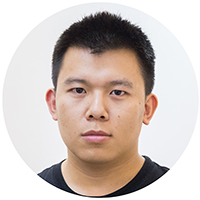
Fu Yu, East China Normal University (China)
Russia is a great and interesting country which I admire. This is my first trip abroad and I’m happy I’ve chosen Russia. I have a very good impression of the summer school because all the professors are quite knowledgeable about international relations. We learnt a lot during these seven days – not only about Russia and China, but also about Pakistan, India and other Asian countries. I think I benefited greatly from group work because we all come from different universities and countries and we can discuss various issues, look at different perspectives and exchange opinions. Previously, I only thought about Chinese perspective on international relations but now I’ve learnt more about Russia’s opinions, which is very interesting. I think Russian and Chinese people should cooperate more.
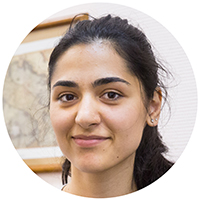
Ekaterina Nakatakyan, MGIMO (Russia)
I came here, because at MGIMO, I major in economics but also focus on Russian-Chinese relations. We completed a project on international relations, and my part was about military security. I looked at areas of military cooperation between China and Russia, at the dynamics of the arms trade, and at other related issues.
I liked the school and the lectures a lot, especially the lecture by Professor Lukyanov. Speaking about teamwork, I was lucky to be on an international team. We played a game where each team member was assigned a country, and we had to defend that country’s interests. I was the only representative of Armenia on my team; the other students represented other countries, and it was exciting to listen to their views of Armenia and for me to share my knowledge with them. I hope they know more about Armenia now. The second team that was formed for project work also featured participants representing various nationalities. It was interesting to work with people who look at the work process differently and who have different presentation style. It was great working together.
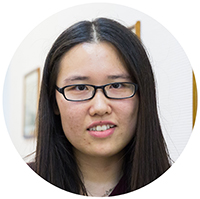
Xiao Miaowen, East China Normal University (China)
I have never been to Russia – this is my first time here. I was really interested in Russia and I think it was a good opportunity to meet many people from different cultural backgrounds. Our project was about Russia and China economic relations and we did a lot of research during this summer school. We also enjoyed the Russian cultural evening very much. We had a lot of interesting side events – a visit to Red Square being one of them. Overall, it’s been a great experience for me.
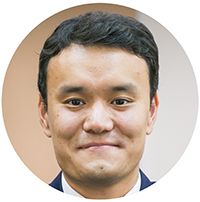
Anuar Baltabayev, Warwick University (UK)
I found the school announcements on the official website of the Higher School of Economics. My decision to come here was based on several reasons. Firstly, I believe that it’s a great chance to meet leading thinkers, experts, professionals, and researchers in the field of international affairs, and to obtain useful knowledge, both theoretical and practical. Secondly, I think it’s a great chance to be part of the HSE alumni, because HSE is one of the leading institutions in Russia. Thirdly, I think that this summer school gives a lot of great opportunities to meet new friends from many different countries, not only from Russia and China, but also from Europe, Central Asia, and even from Africa.
My research interest is ‘One Belt, One Road’. I come from Kazakhstan and for my country it’s important to have good professionals in this field because we are in the centre between Russia and China. During the school I was part of the project group that analyzed China-Russia Relations. We were focusing on institution building in China and Russia and its implications for soft power. As you know, this definition is well-known in the theory of international relations, and we tried to find different approaches to how it can be adapted on the territory of Eurasia, which is definitely in the interests of both Russia and China.
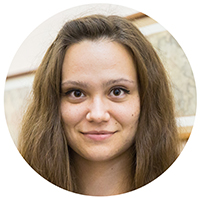
Irina Slashcheva, Belgorod National Research University (Russia)
In general, the school exceeded all my expectations, which is largely because serious events like lectures on relevant global problems were combined with games, concerts, and excursions.
Our project team investigated China’s soft power, and we tried to look at the ways in which Russia can use China’s experience. Our results were rather interesting. In this project, we assumed that soft power is underdeveloped in Russia, but it turned out that by some measures, Russia ranks even higher than China. But Russia can still learn a lot. Russia has too many initiatives related to soft power: a federal programme to advance Russian language, a strategy to export educational services, and many other things. However, these initiatives are not integrated by one idea and one model, which makes them appear disconnected. We concluded that if Russia adjusts its model of soft power management, it would be more effective. In addition, China has some interesting types of soft power diplomacy, such as smile diplomacy and ecological diplomacy. These are things that fit their culture and can be developed and used as an advantage. Russia also has a lot of special characteristics, and it makes sense to consider them and use them in order to advance Russia’s global image – to show that Russia is a great and friendly country that is worth studying, that it is not aggressive, but cooperative, and has vast potential.
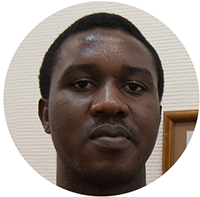
Bamidele Emmanuel Ola, HSE (Russia)
I’ve always been interested in international relations, especially in what concerns Russia and China – with a view to studying in one of these countries and applying the knowledge to my country, Nigeria. I find this school a fantastic opportunity. What was most striking for me, coming from an African background, was the sincerity with which speakers spoke, calling a spade a spade. They were so straightforward! This is very different from some cultures where people might want to change the topic to avoid saying something unpleasant. Here everything is laid bare. I was learning from the speakers but I was also trying to apply it to Africa. In our group we worked on Shanghai Cooperation Organization. We tried to discuss the prospects and the challenges of SCO. It was the first time I’d heard about such organization so it was most educational.
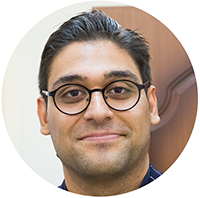
Saman Sofalgar, Tarbiat Modares University (Iran)
I heard about this school through one of my professors at university. He is an expert in the field of Chinese foreign policy studies and I did my thesis with him. I found this summer school a great educative opportunity so I submitted my application and was very happy to come to Russia. The school has helped me to broaden my views. My research is into Chinese foreign policy, particularly in East Asia and Africa. I have had some publications in various journals. So the main focus of the summer school was of particular interest for me. Our project was about the institution building of China and Russia through the lens of soft power. The city is lovely, although the weather is unpredictable this year. People of Moscow are quite friendly. It’s been a pleasure. At my university I majored in International Relations and now I work as a teacher at one of Iranian universities. There were many interesting issues discussed during the summer school. What I liked most was the opportunity to interact internationally – both during the classes and at the dormitory. HSE is truly international!

